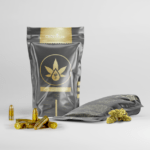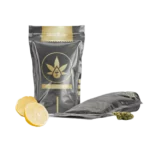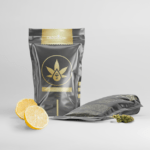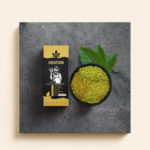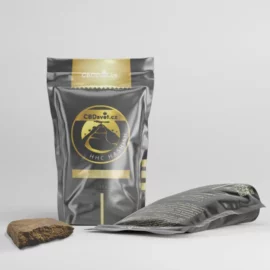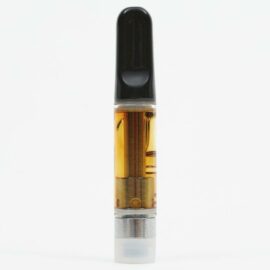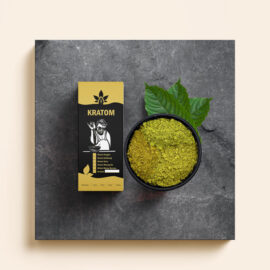Have you heard of Brahmi? It is one plant that has been found to have amazing health benefits. Its English name is Bakopa drobnolistá (Latin Bacopa monnieri) and if you’re interested in healthy living, you should definitely learn more about it. It’s a perennial herb with nootropic and other benefits – and few side effects. It is often used in Indian Ayurvedic medicine, where it is referred to as just “Brahmi”. It is used to improve mental clarity and treat ulcers, digestive disorders, tumors, and mental problems.
Today, bakopa is attracting the attention of scientists as a powerful nootropic herb that can improve cognitive function and promote brain cell health. Studies show that it can improve human memory, reduce stress and anxiety, balance neurotransmitters, protect neurons, function as an antidepressant, and provide other cognitive benefits. People also use bakopa to treat ADHD, dyslexia, Alzheimer’s dementia, and to reduce inflammation
Bacopa monnieri under the magnifying glass
Bacopa monnieri is a perennial non-aromatic herb native to wetlands in Asia, Africa, Australia, Europe and North and South America. Bacopa leaves are succulent, oblong and about 3-6 mm thick. Its flowers are small and white, with four to five petals. It is also grown commercially as a medicinal and nootropic herb. It can be seen under many names around the world, so it is always advisable to follow the Latin name so that you don’t get confused when buying it. It is an aquatic plant that is not mainly found in swamps and can grow in brackish water. Bakopa can be grown hydroponically, as an aquarium plant or in bog gardens or ponds.
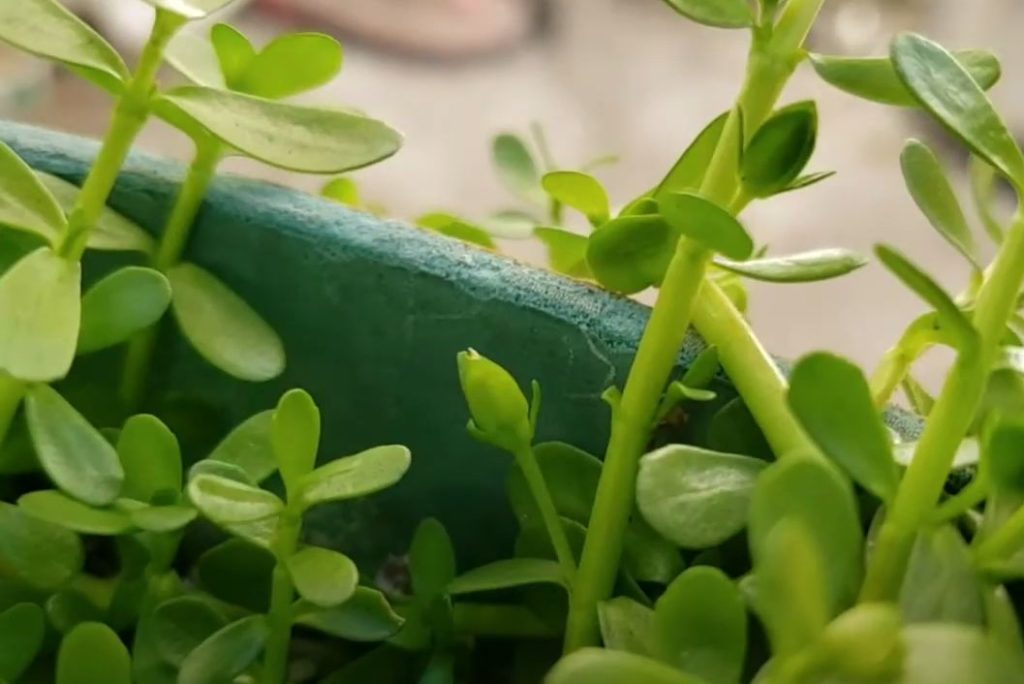
History and traditional use of bakopa
The earliest mention of it is found in Indian sacred texts from the 6th century. Ancient Vedic scholars are said to have used the bakopa to help them memorize long hymns and scriptures. Bakopa has been used in Ayurveda, the ancient Indian system of medicine, for at least 1400 years. As mentioned above, in Ayurvedic medicine, bakopa is called “Brahmi” after Brahma, the creator god of Hinduism.
The medicinal plant Gotu Kola is also sometimes referred to as “Brahmi”, but it is not related to Bacopa monnieri. According to Ayurveda, Bacopa is hot, pungent, bitter, emetic and has laxative effects;
Ayurvedic practitioners find it useful as a treatment for ulcers, tumors, enlarged spleen, indigestion, inflammation, leprosy and anemia. For mental problems, bakopa is put in ghee (clarified butter) to improve its absorption. Indian practitioners also mix bakopa with other plants, in a preparation called Bramhi-Ghrita, to aid in speech disorders, mental fatigue, epilepsy and convulsions, skin care, lowering blood sugar, digestive problems and cancer prevention.
The herb has also been used in the Persian Arabic Unani system of traditional medicine, which is based on the teachings of the Greek physician-philosophers Hippocrates and Galen. In Unani, Bacopa monnieri is known as Jal Brahmi. Unani considers bacopa to be bitter and with aphrodisiac properties. It was used to treat scabies, syphilis, diarrhea, fever and as a blood purifier. In traditional systems of medicine, every part of the plant has medicinal properties. In India, people also use it in cooking for its taste and other health benefits.
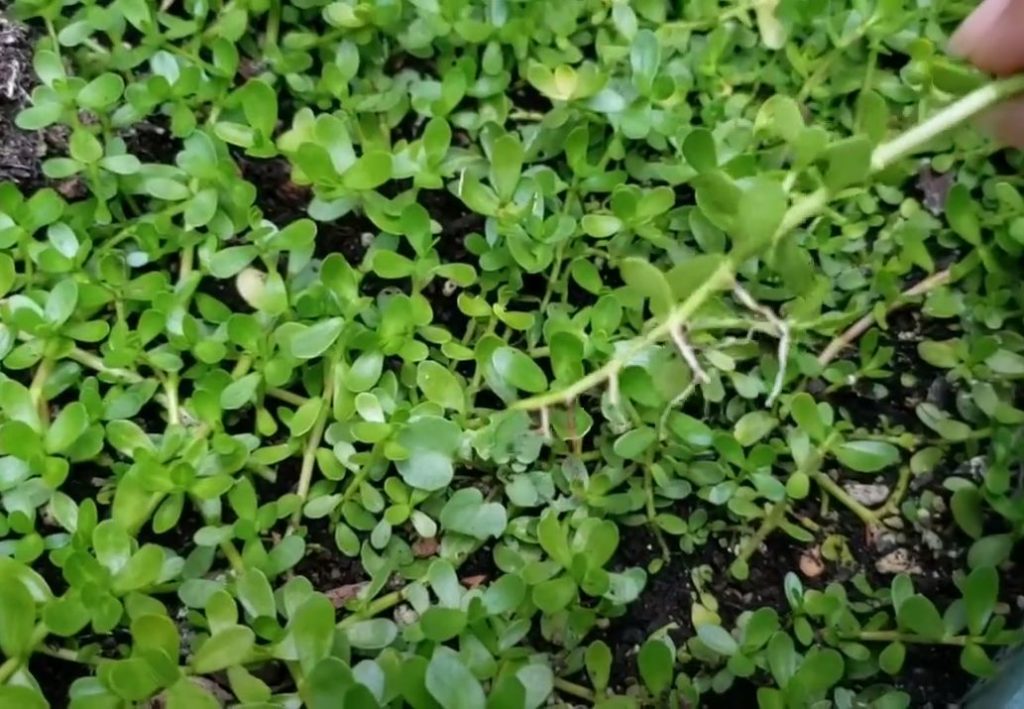
How do bakopa products work?
Traditional medicinal systems use the whole plant or a ghee-based emulsion, but people also take bakopa in capsules, supplemental mixtures, or extracts. In our store, we offer it as Brahmi extract capsule. The main components of bakopa extracts are chemicals called saponins, also called bacosides. Bakopa extracts come in water-, alcohol- and oil-based varieties;
The herb contains a number of active compounds that can affect your body and brain. Each compound has unique effects as well as synergistic effects when taken together in a capsule or extract. Bakopa works by altering the levels of neurotransmitters such as dopamine, serotonin, and acetylcholine in your brain. In animal studies, it also balances levels of stress hormones such as norepinephrine and corticosterone.
Not only can it modulate neurotransmitter levels, but it can also increase blood flow through the brain and alter the translation and expression of specific receptors in your nervous system. In this way, bakopa can improve learning, memory, sleep, relaxation, and mood. According to studies, it also affects the levels and action of brain-derived neurotrophic factor (BDNF). BDNF is associated with increased neuroplasticity (your brain’s ability to change and learn new things) and lower levels of depression. BDNF is also neuroprotective, which means it protects against injury or damage to your brain and nervous system;
Another way in which bakopa exerts its neuroprotective effects is through antioxidant, anti-inflammatory and immune mechanisms. It can boost the function of your body’s natural antioxidant defense system and reduce oxidative damage. Studies show that bakopa reduces hydrogen peroxide levels, lipid peroxidation, and other oxidative stress factors that are associated with cell damage and inflammation.

14 health benefits of bakopa
The health benefits of bakopa range from increased memory and reduced anxiety to improved lipid levels and reduced risk of heart disease. Here are 14 health benefits of this plant.
1. Improved memory and cognition
Numerous studies confirm that bakopa has a nootropic effect in adults and children, enhancing brain health and memory. The cognitive effects of bakopa are enormous. At doses of 320 or 640 mg, it can improve multitasking stress reactivity and reduce anxiety during demanding cognitive tasks, allowing people to multitask at the same time.
A meta-analysis of 437 healthy human subjects showed that bakopa improved cognition and reduced choice reaction time (link to study).
In a 90-day study of 62 participants who were given 300 milligrams of bakopa extract daily, improvements in spatial memory, working memory, and rapid visual processing (link to study).
A review of five studies found that Bacopa monnieri improves children’s language skills, including vocabulary, spelling, sound processing and word comprehension. It also increases the number of items children can recall during the test.
In another study on 300 children, bakopa improved spatial working memory and strategy (link to study).
2. Stress and anti-anxiety effects
Bakopa reduces the perception of stress and anxiety in both healthy people and people suffering from anxiety. In a double-blind study, the herb reduced cortisol levels and perception of stress during challenging tasks (link to study).
In people with anxiety and neuroses, long-term supplementation with bakopa improved memory and learning (link to study).
Bakopa can also reduce stress-induced damage to the hippocampus, the primary area of your brain involved in memory formation. Studies in rats have also confirmed bakopa’s anti-stress properties (link to study).

3. Balancing neurotransmitters and antidepressant effects
Bakopa increases levels of BDNF and serotonin in the brain, both of which have antidepressant effects, as well as other neurotransmitters like dopamine;
In one study, bakopa was found to help prevent seizures in epileptic patients caused by an imbalance of gamma-butyric acid (GABA) levels in the brain (link to study).
4. Benefits for ADHD and dyslexia
In a study of 120 children newly diagnosed with attention deficit hyperactivity disorder (ADHD), researchers found that an herbal preparation containing bakopa improved attention, cognition and impulse control (link to study).
In another similar study, children aged 6-12 (diagnosed with ADHD before age 7) found that it alleviated ADHD symptoms and was well tolerated by children.
Although the benefits of bakopa for dyslexia have not been studied in clinical trials, preliminary evidence suggests that it may provide numerous benefits.
A neuropharmacological review of studies of the effects of bakopa on children found that it improved their language performance (link to study).
5. Antioxidant and anti-inflammatory effects
Bakopa can have a wide range of anti-inflammatory effects in your body and brain, most of which are due to its antioxidant effects. A quality extract promotes free radical scavenging and protects brain cells from cytotoxicity (cellular toxicity) and DNA damage that can lead to Alzheimer’s disease.
Bakopa also has a dose-dependent ability to scavenge free radicals and prevent DNA damage in the prostate glands of aging mice, which can manifest in human prostate problems.
Bakopa can also inhibit inflammatory pathways in the brain by preventing the release of pro-inflammatory cytokines. Early in vitro evidence suggests that it may reduce inflammation in rheumatoid arthritis (link to study).
6. Anti-aging and neuroprotection effects
Inflammation and cell damage appear to be the main causes of Alzheimer’s disease and other forms of dementia and age-related degenerative brain disease. Researchers speculate that bakopa could reduce the likelihood or delay the onset of neurodegenerative and other aging-related diseases by reducing chronic inflammation and other aging-related effects.
According to a review of six different studies, bakopa improved recall and memory in people with dementia or significant cognitive impairment.
Several studies have also found that it improves cognitive performance in healthy older people. In a study with 136 healthy elderly people, 300 milligrams of the extract caused significant improvements in memory retention and retrieval (link to study).
In a study on 35 people over the age of 55, Bacopa monnieri extract improved their overall memory scores, particularly logical memory and pair association (link to study).
Bakopa reduces the formation of beta-amyloid plaques. Beta-amyloid plaque is a major contributor to Alzheimer’s dementia. Cell culture studies and animal models predict that it may also be neuroprotective in Huntington’s disease and Parkinson’s disease.
7. Lower blood pressure and prevention of heart disease
No large controlled studies have yet shown that bakopa is effective in lowering blood pressure and preventing heart disease. However, there is limited human data to support this possibility. In postmenopausal women, the extract lowered LDL cholesterol, triglycerides, and blood pressure. Bakopa acts through the nitric oxide pathway to lower blood pressure in rats. Bakopa also protected rat hearts from injury caused by ischemia and reperfusion (link to study).
In rats, an alcohol-based bakopa extract reduced high cholesterol levels (link to study). Another study found that when this herb was included as part of an herbal preparation, it protected against heart damage in rats. It also seemed to protect against biochemical changes and heart valve problems in rats with high cholesterol.

8. Benefits for asthma and allergies
Mast cells produce and release histamine, which is involved in your body’s allergic reaction. Bakopa acts as a mast cell stabilizer, which reduces histamine production. In Ayurveda, it benefits people with asthma. Studies in rats have found that the herb induces bronchodilation and reduces expiratory pressure, confirming its traditional role in promoting asthma relief (link to study).
9. Improved immune function
The traditional Ayurvedic use of this herb to boost immune system function is confirmed by studies investigating its effects on immune function (link to study).
10. Anti-cancer effects
Studies of healthy cells and cancer cells predict that extracts from bakopa may help prevent cancer by preventing the replication of cancer cell lines. This may cause cell death of cancer cells and increase antioxidant levels. In mice, the oral extract slowed the development of solid tumors. Findings in rats predict it may help prevent colon cancer (link to study).
11. Antimicrobial properties
Among the advantages is also its antimicrobial action. It inhibits Staphylococcus aureus (Staphylococcus aureus), Vibro cholera, H. pylori, Salmonella and E. coli, as well as antifungal activity against Candida and black mould;
12. Improving intestinal health
In systems of traditional medicine, the juice of the leaves of the bakopa is given to children to help relieve diarrhea. It is also traditionally used for constipation and other stomach problems. A study with 169 participants demonstrated a possible benefit in relieving symptoms of irritable bowel syndrome (IBS) (link to study).
In normal rats and rats with type 2 diabetes, bakopa had antiulcer and ulcer healing effects (link to study). Bakopa strengthens the mucosal defence factors in the intestine, which may explain its anti-ulcer effects.
13. Protection of the liver
Studies in rats show that bakopa protects against acetaminophen (Tylenol)-induced liver damage by increasing antioxidant levels (link to study). It may also protect against morphine liver damage.
14. Effects on menstrual cycles and postmenopausal problems
In India, the whole fresh plant is crushed and eaten with cow’s milk to help with irregular menstrual cycles. In postmenopausal women, bakopa extract reduced insomnia, lowered blood pressure, and improved cholesterol and triglyceride levels (link to study).
Products that may be of interest to you
Dosage and how to take it
Bakopa is available in various forms. The dried plant is sold as a powder, in capsules, in oils and in mixed herbal preparations. Extracts are sold in powdered form in capsules and as a liquid extract. Studies commonly use 300-450 milligrams of the extract per day for healthy adults, but some studies have used 20-100 milligrams. Children and other sensitive people should start with lower doses.
Take supplements with this plant once or twice a day, before meals, with a full glass of water. Since bakopa is fat-soluble, it is better absorbed if you consume some healthy fats along with it. You can also grow your own bakopa plants in an aquarium or in moist acidic soil. You can also try using it in recipes. As always, check with your doctor before starting any new herb or supplement.Studies commonly use 300-450 milligrams of the extract per day for healthy adults, but some studies have used 20-100 milligrams. Children and other sensitive people should start with lower doses.
Safety, side effects and interactions
Bacopa monnieri has few side effects and low toxicity. Even children tolerate it well in studies. In many studies, people tolerated 20-450 milligrams per day with minimal side effects. The most common short-term side effects people reported were nausea and upset stomach. It does not appear to have any negative chronic health effects. In one study on rats, researchers found that the upper limit corresponds to a human dose of 25 grams of the whole leaf of this plant per day.
There is very little evidence that extracts of bakopa cause serious clinical, neurological or haematological complications or organ damage.
A study in mice found that bakopa reduced sperm count but otherwise did not affect fertility or libido, and the effect was reversible (link to study). If you are a man who has a low sperm count, or you are a woman who wants to get pregnant, it may be better to avoid this plant.
Interactions and warnings
Herbs may seem harmless, but they are powerful medicine. Since bakopa can increase serotonin levels, you should seek medical advice from your doctor if you are taking selective serotonin reuptake inhibitors (SSRIs) or other antidepressants before taking the product. High serotonin levels can result in a dangerous condition called serotonin syndrome.
Bakopa inhibits liver enzymes called cytochrome enzymes, which are involved in the metabolism of certain drugs, so ask your doctor for advice before use if you are taking prescription drugs.
A study of bakopa with amitriptyline, a tricyclic antidepressant, showed that the drug can increase drug levels (link a studii).
Should you try bakopa?
It has a long history of medical use and a long list of benefits, but if you are a man with a low sperm count or a woman desiring pregnancy, you should probably avoid bakopa as it can temporarily (but reversibly) reduce fertility.
As it is unlikely to cause serious side effects in you, it is worth trying if you want to improve your mental acuity, reduce your stress levels or suffer from anxiety or depression.
If you are at risk for Alzheimer’s disease or other forms of dementia, it can improve your brain function and health by reducing inflammation.
If you’re interested in discovering the cognitive benefits, it can help boost your concentration, increase your focus, and get you through the afternoon doldrums.



